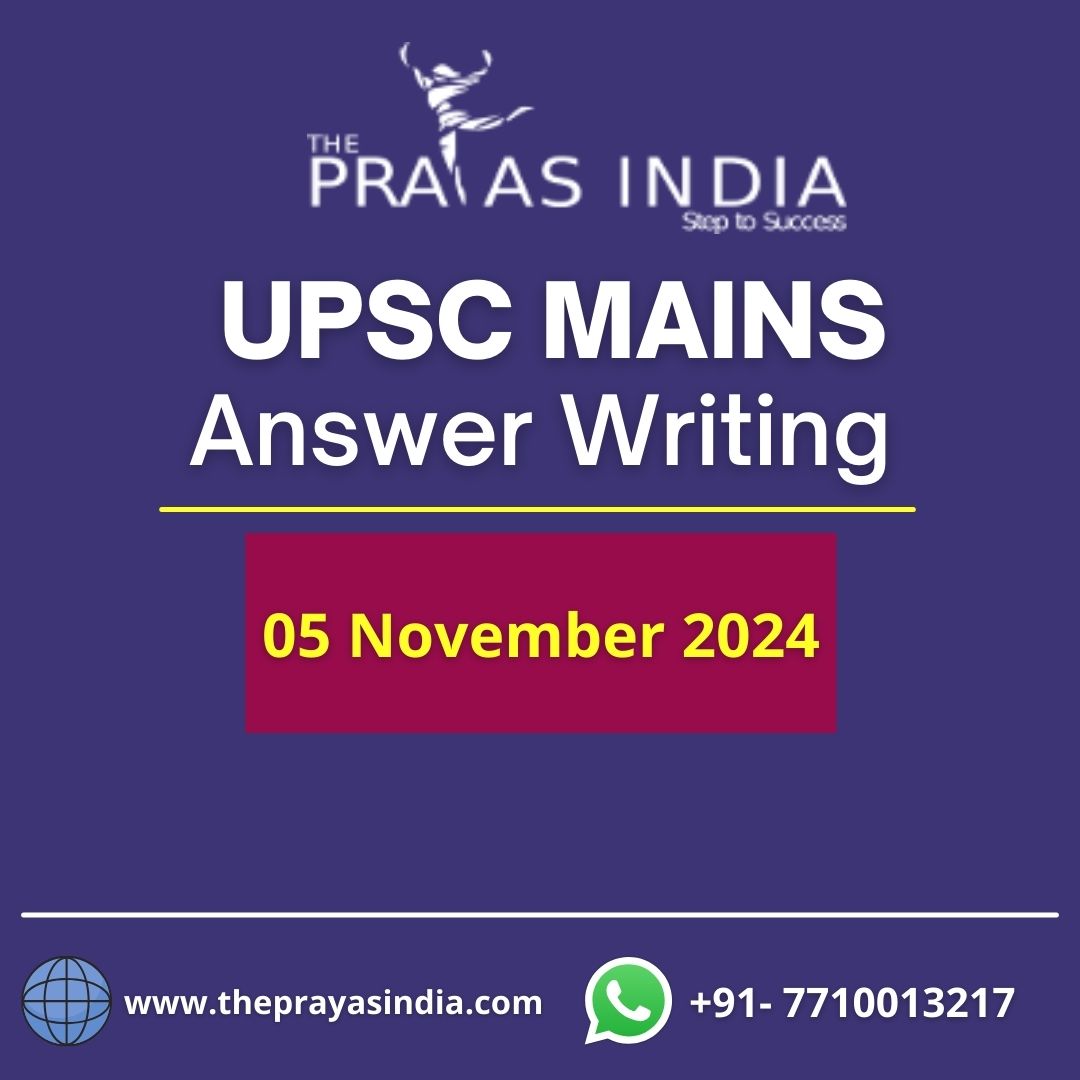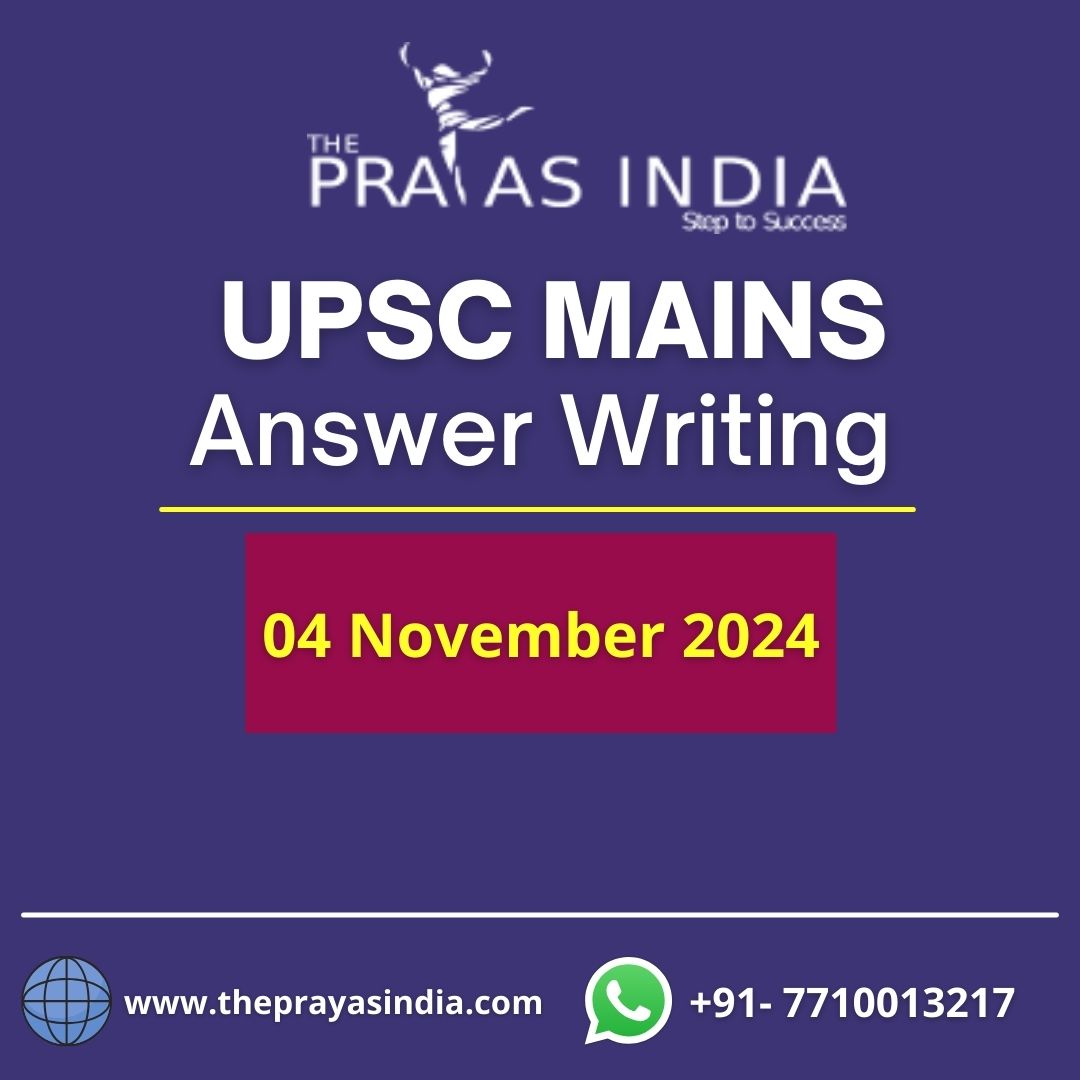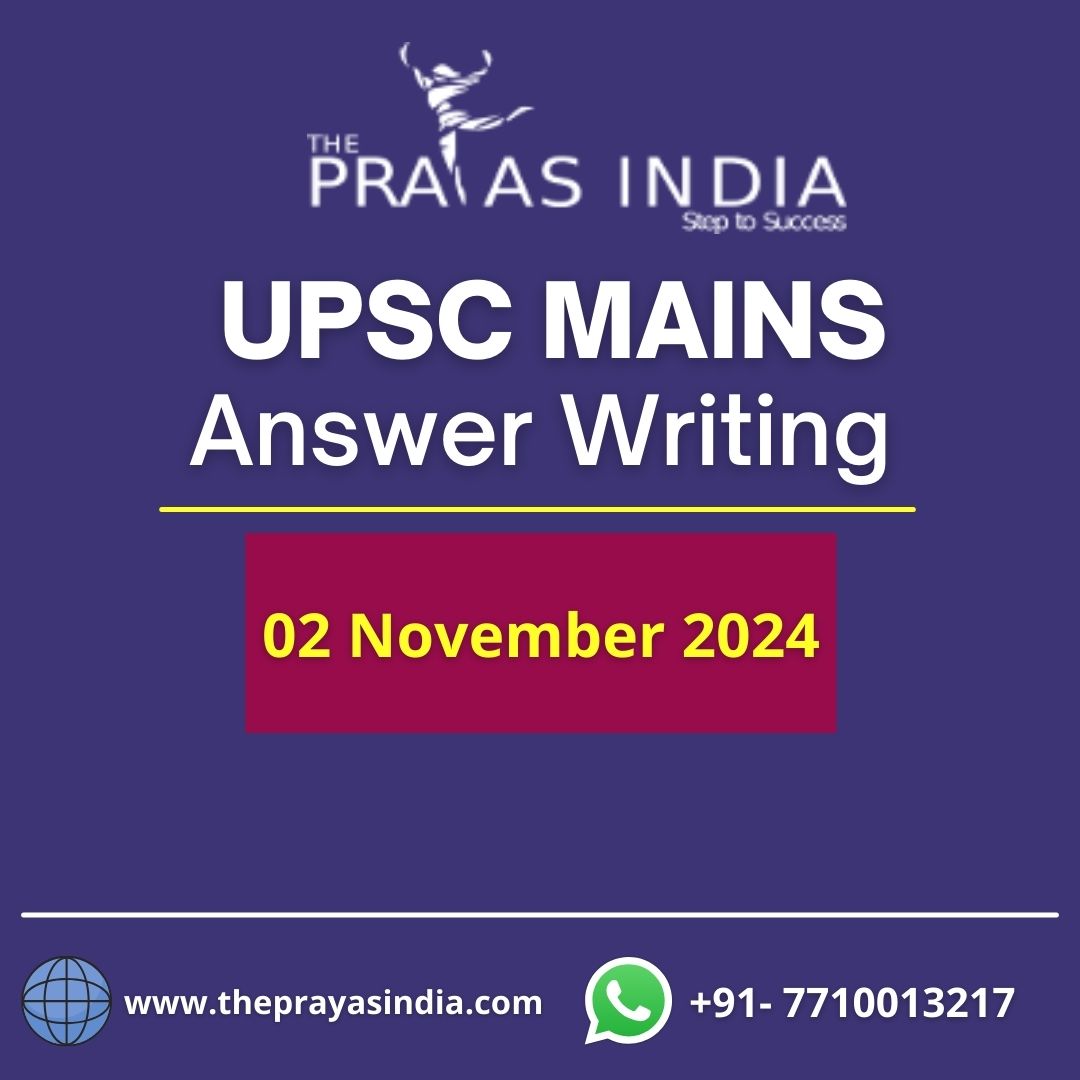MAINS QUESTIONS
Q1. Demanding that Pakistan and the British concede it was one thing because it was in line with the policies the Muslim League had previously pursued. But why did the Congress, which had long supported the unification of India, abandon it? Examine. (250 words)
Paper & Topic: GS I – National Movement
Introduction:
- India’s 1947 split is rightfully remembered as a significant event in Indian history. There are two schools of thought: one holds that the partition could not have been avoided and the other believes it could not have been prevented.
Body:
It was impossible to avoid the Partition:
- Partition’s seeds were planted a very long time ago.
- As early as the 1940s, Winston Churchill prophesied that animosity between Hindus and Muslims would continue to serve as “a bulwark of British dominance in India.” This viewpoint was a component of the British “divide and rule” strategy.
- Congress’ attempts to impose Islam were futile. The community was only marginally involved in nearly all nationalist movements.
- The Congress Party leaders in the 1946 elections refused to share power with Jinnah because they believed they could win a majority of the vote without Muslim assistance. These ideas encouraged Muslim concerns that secular nationalism was a front for Hindu domination.
- Muslims are concerned as a result of Congress’s activities and the rise of racial organisations like the Hindu Mahasabha.
Imminent situation:
- massive destruction and bloodshed. A civil war would have started if the Congress leaders had opposed Partition (with violence in Punjab and Bengal escalating). Racial tension would have been higher.
- Hurry to leave—It appears that the British believed that by dividing the nation along religious lines, departure would be made as straightforward as possible. Indian leaders wanted to exercise their power while the British were eager to separate and leave.
- After Nehru, Congressmen like Patel and Rajaji started to promote the notion of Pakistan more and more. Gandhi ultimately gives up despite his opposition to the concept of Pakistan.
The partition was accepted by Congress for the following reasons:
- The Congress was merely yielding to the inevitable since it had repeatedly failed to win over the Muslim masses to the nationalist cause.
- Over the years, the Congress has been unable to convince the majority of Muslims to support nationalism.
- Additionally, it had failed to halt the rise of Muslim communalism, especially since 1937.
- During the Cripps Mission in 1942, provinces with substantial Muslim populations acquired autonomy.
- Gandhiji took a step further in his 1944 meetings with Jinnah by recognising the right of Muslim-majority provinces to self-determination.
- Congress eventually gave its approval to the concept of a separate constituent assembly made up of the provinces with a Muslim majority in June 1946. (added to Groups B and C of the Cabinet Mission Plan).
- The Mission plan was understood differently by the Congress and League, who both saw it as a defence of their respective beliefs.
- The Interim Government was established on September 2nd, 1946, with Nehru serving as the de facto head of state and only Congress MPs taking part.
- This was contrary to the League’s rule that all contracts must be approved by it.
- On August 6, 1946, Muslim communal organisations in Calcutta incited racial hysteria.
- Hindu organisations responded in kind, and as a result, 5000 people died.
- On June 30, 1948, the British decided to leave India, and Lord Mountbatten was named as the new Viceroy.
- The Congress Working Committee passed a resolution at the start of March 1947 that made the first official mention of Partition. It stated that Bengal and Punjab would need to be divided if the country were to be divided.
- By June 1947, the leaders of the Congress had come to the conclusion that the Muslim League’s call for Direct Action had greatly increased the risk of intercommunal violence, which could only be prevented by a quick change in power.
- The division strategy outlined in Lord Mountbatten’s Third June Plan was approved by Congress.
- The League’s demand for an independent Muslim state was met with a succession of concessions, the last of which was the adoption of Partition in 1947.
Conclusion:
- But a year later, when the fight for Pakistan moved from the ballot box to the streets, it was too late to go back. The League made a succession of small concessions in response to its demands for an independent Muslim state, which culminated in 1947 with the League’s acceptance of Partition.
Q2. The partition of India was the result of a number of circumstances. Nobody was in charge of it and didn’t have the power to stop it. Critically evaluate. (250 words)
Paper & Topic: GS I – National Movement
Introduction:
- The “last-minute” manoeuvre the British employed to win agreement over how independence would be attained was the division of British India into the two separate states of India and Pakistan on the weekend of August 14–15, 1947. Most people were surprised by the massive migration that followed because few people at the time were aware of what Partition would entail or what its effects would be.
Body:
The following factors had an impact on how India was divided:
- Discretionary Power: The British employed a divide-and-rule strategy when they colonised India.
- During the census, individuals were classified as distinct from one another and divided into religious groups.
- The Muslims, who had previously ruled the subcontinent and India under the Mughal Empire for more than 300 years, also caused them concern.
- Muslim persecution in Britain:
- The Mohammedan Anglo Oriental College at Aligarh and the All-India Muslim Conference were two organisations that the founders of the Muslim League and the philosophy of Pakistan sprang from, and both organisations got financial support from the British.
- A distinct Muslim electorate was created as soon as the league was organised.
- India’s electoral system was designed to keep Muslims apart as a result.
- According to some scholars, sectarian politics, which began in the early 20th century, reached its zenith after Partition.
- They claim that the creation and expansion of distinct Muslim electorates by the colonial authority in 1919, which were formed in 1909, had a profound impact on the structure of communal politics.
- Hindus and Muslims in India were also divided ideologically.
- Despite the nation’s strong nationalist sentiments, by the late 19th century, religious identities—rather than ones based on class or region—became the basis for many local conflicts and activities.
- The objectives of the socio-religious movements Tanzim, Shuddhi, Tablighi, and Sangathan were to erode the religious sensibilities of both Muslims and Hindus.
- Hindu revivalists’ contribution was to widen the gap between the two countries. They were angry about how the Muslims used to rule India.
- Hindu revivalists joined forces to support the ban on cow slaughter, which Muslims were using as a low-cost source of meat.
- Additionally, they planned to replace the Persian script with the Hindu Devanagari script as the official writing system, essentially making Hindi the front-runner for the title of national language rather than Urdu.
- When colonial rule came to an end, the Congress’ numerous policy blunders further convinced the League that it would be difficult to flourish in a unified India since their interests would be wholly suppressed.
- One such regulation required singing of the anti-Muslim song “Bande Mataram” by Muslim students at Indian colleges.
- British impressions of the Muslim League at the time of the August Offer in 1940 were the failure of the Cripps Mission and its acceptance of the province’s autonomy, which has a majority of Muslims.
- Indirectly, the League’s demands were weakened by the failure of the Shimla Conference.
- The Cabinet Mission served as the death knell. The 1947 Mountbatten Plan was then put into motion following Jinnah’s severe Direct Action Day.
Partition, however, might have been avoided if:
- If the Congress had been successful in quelling the raging waves of Muslim communalism, which had been beating with growing intensity, especially after 1937, and uniting the Muslim masses behind the national cause.
- The common people ought to have recognised how wicked it was for the British to favour one town over another.
- If ethnic minority organisations like the Muslim League and Hindu Mahasabha were outright prohibited.
Conclusion:
- As noted by renowned historian Ramachandra Guha, “Partition had become inevitable due to the shortsightedness of Congress, Jinnah’s aspirations, and Britain’s amorality and cynicism,” the process of division may have been carried out more effectively in hindsight, which would have prevented numerous fatalities, horrifying tragedies, and contributed to the maintenance of cordial relations between the neighbours, India and Pakistan.




